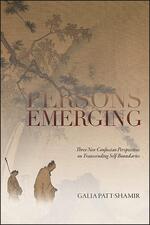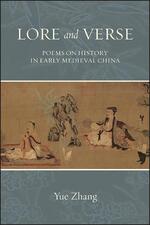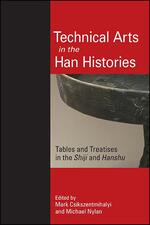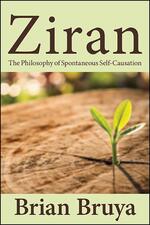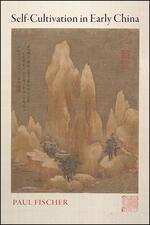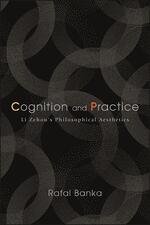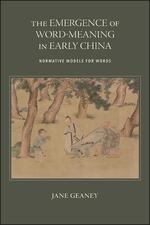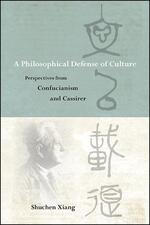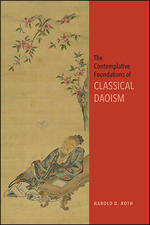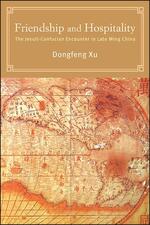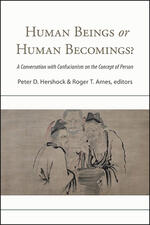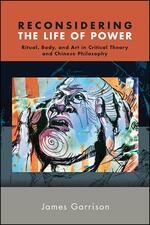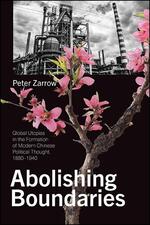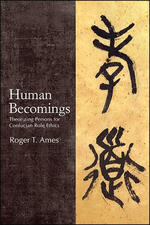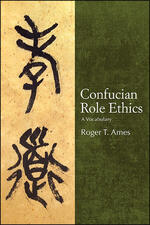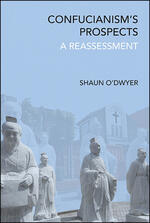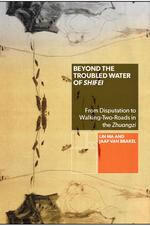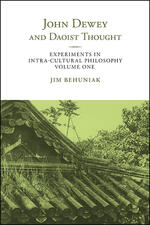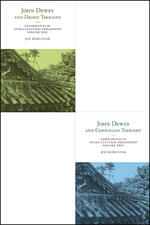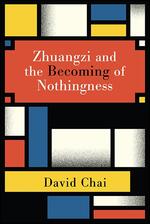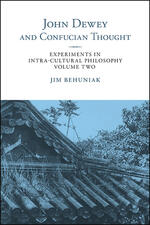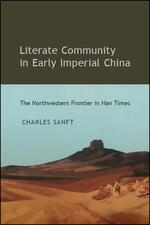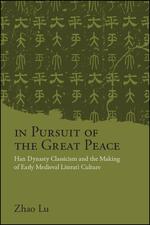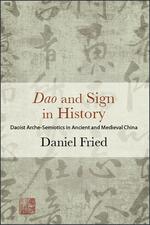SUNY series in Chinese Philosophy and Culture
A Conceptual Lexicon for Classical Confucian Philosophy
Uses a comparative hermeneutical method to explain the most important terms in the classical Confucian philosophical texts, in an effort to allow the tradition to speak on its own terms.
Persons Emerging
Offers three neo-Confucian understandings of broadening the Way as broadening oneself, through an ongoing process of removing self-boundaries.
Lore and Verse
Explores how poetry was used to disseminate and interpret history in early medieval China.
Technical Arts in the Han Histories
The first concerted attempt to analyze how the histories Shiji and Hanshu described the technical arts as they were applied in vital areas of the administration of pre-Han and Han China.
Ziran
The ancient concept of spontaneous self-causation (ziran) from Daoism opens a path to understanding human action as self-organizing, attention as effortless, and art as somatic.
Self-Cultivation in Early China
An introduction to ancient Chinese ideas on how to live a good life.
Cognition and Practice
Explores the aesthetic theory of one of China's most important and influential contemporary philosophers.
The Emergence of Word-Meaning in Early China
Posits the origin of a specifically Chinese concept of “word-meaning,” and sheds new light on the linguistic ideas in early Chinese philosophical texts.
A Philosophical Defense of Culture
Draws on two different but strikingly similar streams in our world tradition to argue for the contemporary philosophical relevance of “culture.”
The Contemplative Foundations of Classical Daoism
Brings early Daoist writings into conversation with contemporary contemplative studies.
Friendship and Hospitality
Offers a comparative and deconstructive reading of the cross-cultural encounter between the Jesuits and their Confucian hosts in late Ming China.
Human Beings or Human Becomings?
Argues that Confucianism and other East Asian philosophical traditions can be resources for understanding and addressing current global challenges such as climate change and hunger.
Reconsidering the Life of Power
Offers a compelling intercultural perspective on body, art, self, and society.
Abolishing Boundaries
Offers new perspectives on modern Chinese political thought.
Human Becomings
Offers an in-depth exposition of the Confucian conception of persons as the starting point of Confucian ethics.
Confucian Role Ethics
Argues that the only way to understand the Confucian vision of the consummate moral life is to take the tradition on its own terms.
Confucianism's Prospects
Challenges descriptions of East Asian societies as Confucian cultures and communitarian Confucian models as a political alternative to liberal democracy.
Beyond the Troubled Water of Shifei
Offers the first focused study of the shifei debates of the Warring States period in ancient China and challenges the imposition of Western conceptual categories onto these debates.
John Dewey and Daoist Thought
Proposes an “intra-cultural philosophy” based on John Dewey’s “cultural turn” and promotes Daoist thought as a resource that can help to reconstruct outmoded assumptions that continue to shape how we currently think.
Experiments in Intra-cultural Philosophy Set (Volumes 1 and 2)
Argues that we move beyond philosophy that is simply “comparative” and uses John Dewey’s late period reflections as the basis for an alternative.
Zhuangzi and the Becoming of Nothingness
Investigates the cosmological and metaphysical thought in the Zhuangzi from the perspective of nothingness.
John Dewey and Confucian Thought
Assesses John Dewey’s visit to China in 1919–21 as an “intra-cultural” episode and promotes “Chinese natural philosophy” as a philosophical context in which to understand the connections between Dewey’s philosophy and early Confucian thinking.
Literate Community in Early Imperial China
Through an examination of archaeologically recovered texts from China’s northwestern border regions, argues for widespread interaction with texts in the Han period.
In Pursuit of the Great Peace
Examines the Great Peace (taiping), one of the first utopian visions in Chinese history, and its impact on literati lives in Han China.
Dao and Sign in History
Provides a new perspective on important linguistic issues in philosophical and religious Daoism through the comparative lens of twentieth-century European philosophies of language.
